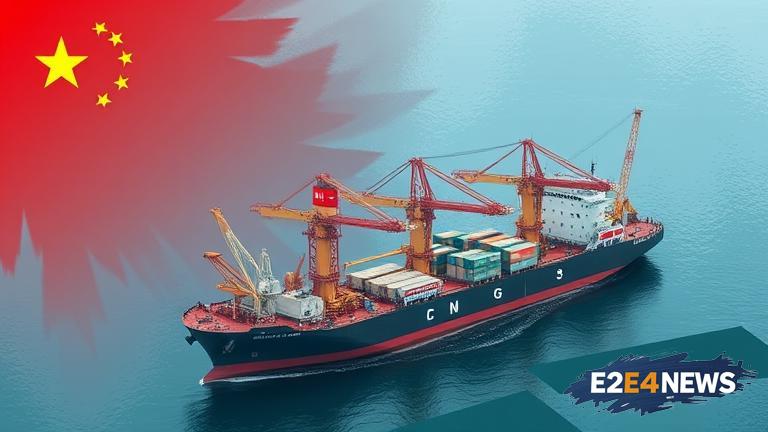The United States has imposed sanctions on a Chinese terminal, marking the latest escalation in tensions between the two nations over Iranian oil trade. The sanctions, which were announced on July 31, 2025, target a terminal in China that has been accused of facilitating the trade of Iranian oil. This move is part of a broader effort by the US to enforce its sanctions on Iran and prevent the country from exporting its oil. The US has long maintained that Iran’s oil exports are used to fund terrorist activities and support the country’s nuclear program. The sanctions on the Chinese terminal are the latest in a series of measures taken by the US to target companies and individuals involved in the Iranian oil trade. The US has also imposed sanctions on several other Chinese companies and individuals in recent months for their alleged role in facilitating the trade of Iranian oil. The sanctions have been met with criticism from China, which has accused the US of overstepping its bounds and interfering in the country’s internal affairs. The Chinese government has also vowed to take measures to protect its companies and citizens from the impact of the sanctions. The US sanctions on the Chinese terminal are likely to have significant implications for the global oil market, as China is one of the largest importers of Iranian oil. The sanctions could also lead to increased tensions between the US and China, which are already engaged in a trade war. The US has been seeking to reduce Iran’s oil exports to zero, and the sanctions on the Chinese terminal are part of this effort. The sanctions have been imposed under the US Iran Sanctions, Accountability, and Human Rights Act, which allows the US to target companies and individuals involved in the Iranian oil trade. The US has also been working with other countries to enforce its sanctions on Iran and prevent the country from exporting its oil. The sanctions on the Chinese terminal are the latest example of the US using its sanctions regime to target companies and individuals involved in the Iranian oil trade. The US has imposed sanctions on numerous companies and individuals in recent years for their alleged role in facilitating the trade of Iranian oil. The sanctions have had a significant impact on Iran’s economy, which is heavily reliant on oil exports. The US has also been seeking to reduce Iran’s influence in the region and prevent the country from supporting terrorist activities. The sanctions on the Chinese terminal are part of this broader effort. The US has been working closely with its allies to enforce its sanctions on Iran and prevent the country from exporting its oil. The sanctions have been met with criticism from some countries, which have accused the US of overstepping its bounds and interfering in the internal affairs of other nations. The US has maintained that its sanctions are necessary to prevent Iran from supporting terrorist activities and to reduce the country’s influence in the region. The sanctions on the Chinese terminal are likely to have significant implications for the global oil market and could lead to increased tensions between the US and China. The US has been seeking to reduce its reliance on foreign oil and has been working to increase its own oil production. The sanctions on the Chinese terminal are part of this broader effort. The US has also been working to promote American energy exports and to reduce the country’s trade deficit. The sanctions on the Chinese terminal are likely to have significant implications for the global economy and could lead to increased tensions between the US and China. The US has maintained that its sanctions are necessary to protect national security and to prevent Iran from supporting terrorist activities. The sanctions on the Chinese terminal are the latest example of the US using its sanctions regime to target companies and individuals involved in the Iranian oil trade.
